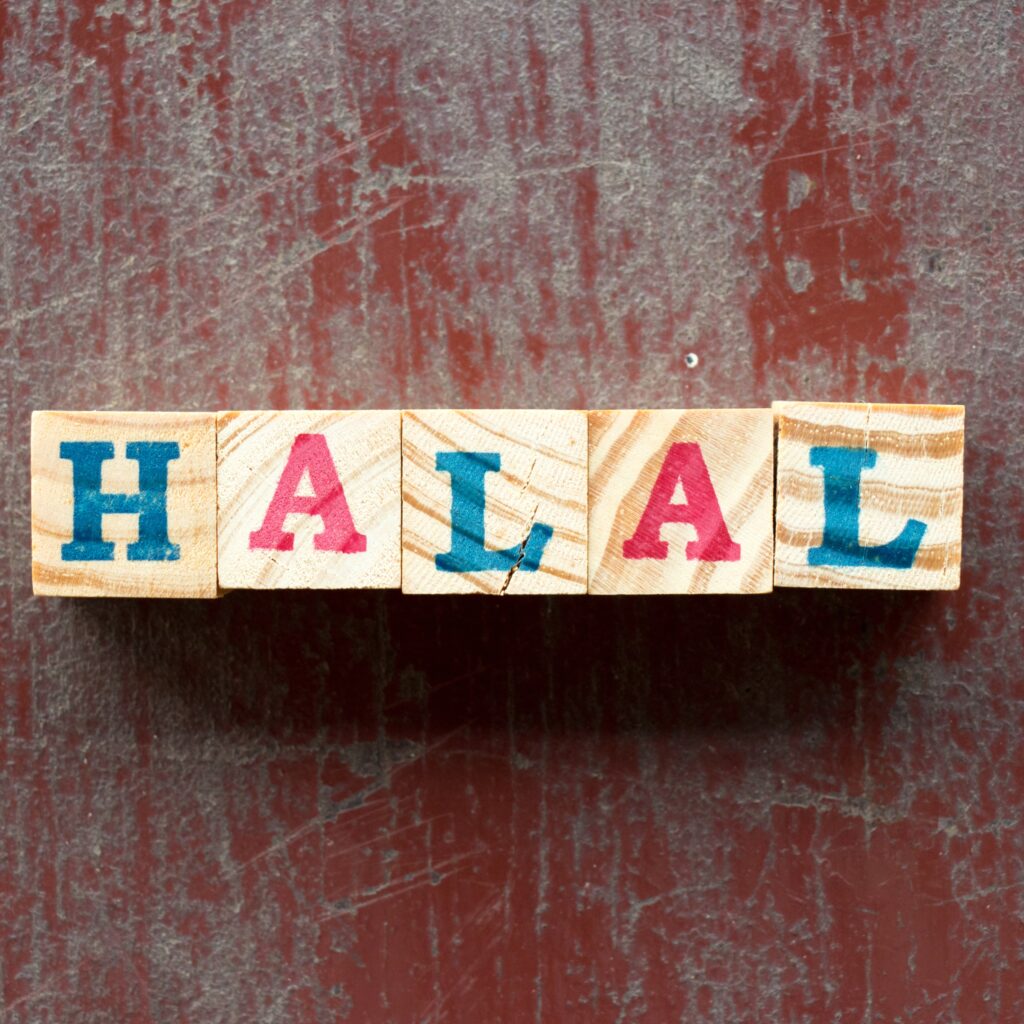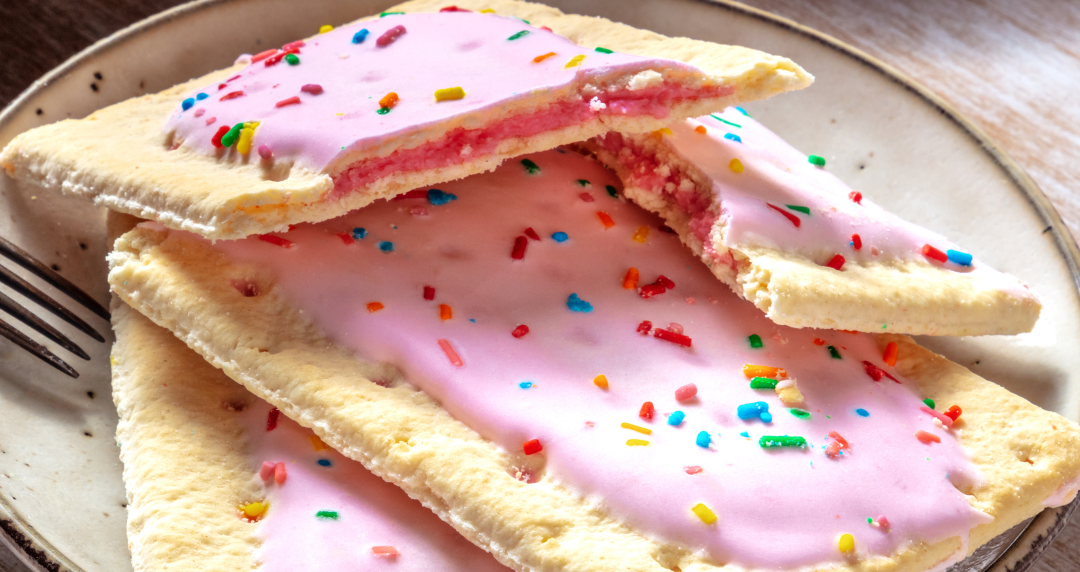Ever wondered if your favorite Pop-Tarts are halal? Many people who follow halal dietary laws may find themselves asking this question. Halal dietary restrictions hold great significance in the lives of many Muslim consumers around the world, guiding their daily food choices.
Pop-Tarts, with their tasty and convenient appeal, naturally spark curiosity on whether they align with these guidelines. In this post, we’ll unravel the mystery and provide you with everything you need to know about whether Pop-Tarts are halal. Stick around and discover answers that could make snack time easier for you and your loved ones.
What Does Halal Mean?
Let’s start by breaking down what halal really means. This will help you understand why it’s essential to know if foods like Pop-Tarts fit into a halal diet.
Definition of Halal
In Arabic, “halal” means permissible or lawful. When it comes to food, halal is part of a set of Islamic dietary laws that guide what Muslims can consume. Think of it as a spiritual guidebook for eating right. According to these guidelines, pork and its by-products, alcohol, and improperly slaughtered animals are a no-go. Food must not only avoid forbidden ingredients, but it must also be prepared according to Islamic rules.
Importance of Halal Certification
Halal certification is like a stamp of approval for foods. It tells you that a product meets all the Islamic dietary standards. Here’s why this certification is super important:
- Religious Assurance: Knowing that what you’re eating aligns with your faith brings peace of mind. It reassures you that you’re living according to your beliefs.
- Transparency: Halal certification provides clarity on what’s inside your food. It’s like having a nutrition label specifically focused on religious compliance.
- Quality Control: Usually, halal certification involves rigorous checks. This means that certified foods are often held to high-quality standards, ensuring that what you’re consuming is clean and safe.
In short, halal certification simplifies your shopping trips and makes life easier. It’s like having a trustworthy friend who knows exactly what you can and can’t eat. This is why knowing if treats like Pop-Tarts are halal is so essential.
This clear understanding of what halal means and why certification is important sets the stage perfectly. You’ll navigate the rest of the guide with greater ease and make more informed choices about whether Pop-Tarts can fit into your halal diet.
Pop-Tarts Ingredient List Overview
Understanding the ingredients in Pop-Tarts is crucial if you’re wondering, are Pop-Tarts halal? Let’s dive into the common ingredients in these popular snacks and highlight any potential non-halal elements.
Common Ingredients in Pop-Tarts
Pop-Tarts are known for their convenient, delicious nature. What goes into making each tasty pastry? Here’s a rundown of typical ingredients:
Enriched Flour: This includes wheat flour, niacin, reduced iron, thiamin mononitrate (vitamin B1), riboflavin (vitamin B2), and folic acid.
Sugar: The sweet essence of any Pop-Tart.
Dextrose: Another form of sugar.
Soybean and Palm Oil: Commonly used for the pastry’s texture.
Corn Syrup: Adds additional sweetness.High Fructose Corn Syrup: Often debated in health circles, but still a key component.
Leavening Agents: Such as baking soda and sodium acid pyrophosphate.
Wheat Starch and Salt: Basics that balance flavor and texture.
Monoglycerides and Diglycerides: Fats that help blend ingredients together.
Some Pop-Tarts also use frosting and a variety of fillings which might contain:
Strawberry Puree
Brown Sugar and Molasses
Cocoa Processed with Alkali
While these ingredients are fairly common, certain elements could raise eyebrows when considering halal compliance.

Potential Haram Ingredients
Examining the ingredients gives us a good overview, but specific components might cause concern for those following a halal diet:
- Gelatin: Often derived from pork or non-halal slaughtered beef, gelatin is used in the frosting of some Pop-Tarts. This ingredient could render the product non-halal.
- Flavorings: Natural and artificial flavorings can sometimes include alcohol or other non-halal ingredients. Always a problem for strict halal observances.
- Mono- and Diglycerides: These fats can be derived from animal sources. If they come from non-halal sources, this could be another concern.
- Shortening: Some Pop-Tarts contain shortening, which might be of animal origin and not necessarily halal-certified.
- Confectioner’s Glaze: Used to give that glossy finish on some Pop-Tarts, it’s made from shellac, a resin secreted by certain insects. This ingredient is controversial in halal food compliance.
Understanding these ingredients can help you better navigate whether Pop-Tarts fit into a halal diet or not. Always check the packaging and look for halal certification to be sure.
Wouldn’t it be easier if there were a clear halal certification on every pack? That’d simplify snack time for everyone!
Are Pop-Tarts Halal Certified?
Navigating food choices while adhering to halal dietary laws can sometimes feel like a daunting task. When it comes to your favorite snacks, you’re likely wondering, Are Pop-Tarts Halal Certified? This section aims to shed light on the halal status of these popular treats.
Current Halal Certification Status
Let’s start by getting to the core of the issue. As of now, Pop-Tarts do not hold an official halal certification from recognized halal certification bodies. What does this mean for you? Without a halal certification, you can’t be entirely sure that the product complies with Islamic dietary laws.
Halal certification involves rigorous checks and ensures that every component and process involved complies with halal standards. The absence of such a certification for Pop-Tarts should urge you to dig deeper into the ingredients and manufacturing process.
Statements from the Manufacturer
For added clarity, what does Kellogg’s have to say about their Pop-Tarts? According to official statements from Kellogg’s, the manufacturer of Pop-Tarts, the product is not certified halal. They emphasize that their manufacturing processes include ingredients and methods that may not meet halal standards. For example, gelatin used in some of their products is derived from pork sources, making it haram and unsuitable for those following a strict halal diet.
What does this mean for you? Essentially, it places the responsibility on you to scrutinize individual ingredients if you still wish to consume these tasty treats. Knowing that the manufacturer doesn’t guarantee halal compliance suggests extra caution, as even minor non-compliance can make the entire snack haram.
Reading ingredient labels and doing your own research can be tedious, but it’s essential for your peace of mind. If you want to be absolutely sure that your food aligns with halal standards, it may be best to look for snacks that carry an explicit halal certification.
Conclusion
In wrapping up this guide on whether Pop-Tarts are halal, it becomes clear that you need to be diligent in your choices. Pop-Tarts, with their delectable flavors and easy preparation, might be tempting, but if you’re following a strict halal diet, you need to look beyond the glossy packaging.
If you are interested in teaching Quran online or want to learn Quran online join us today by sending us an email on our contact form!
